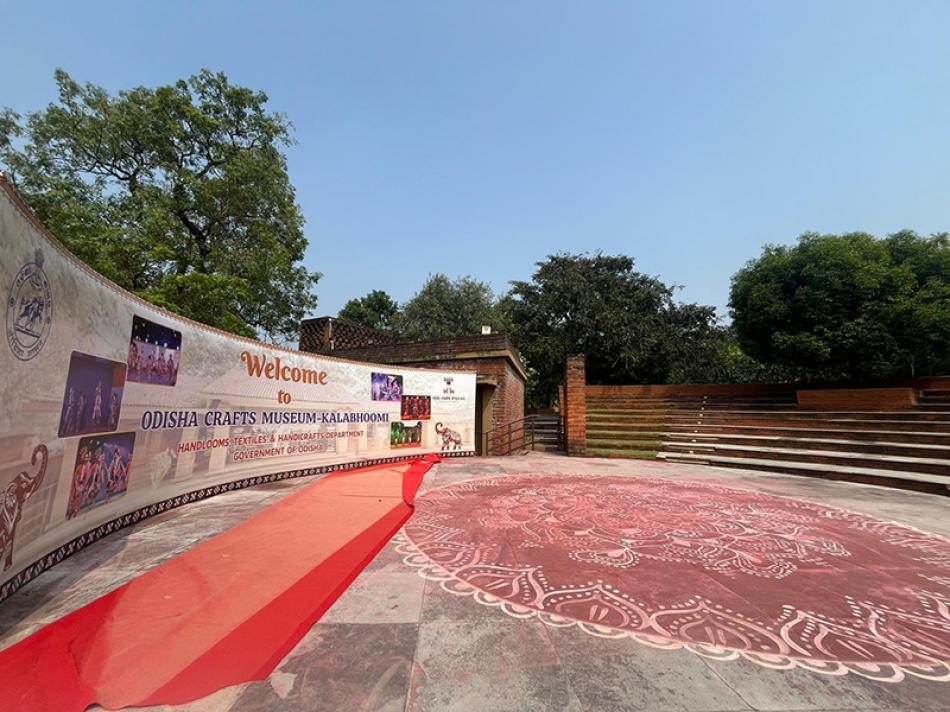Sukanya Chakraborty | @notintownlive | 19 Apr 2023, 03:59 am
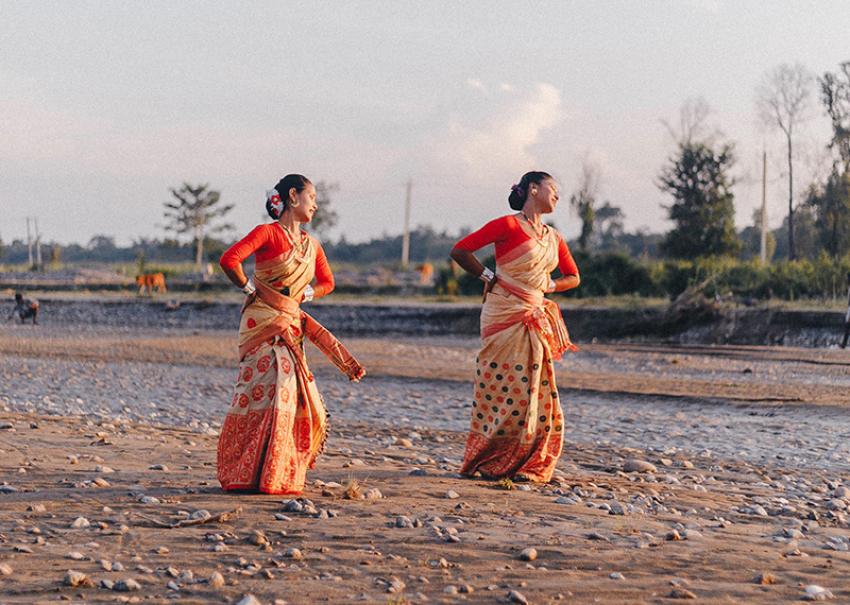 Bihu
Bihu
Image: Unsplash
Entering into the Guinness Book of World Records, Bihu, the famous indigenous festivals of Assam, is going global as around 11,300 Bihu performers scripted history on April 13 with the largest Bihu performance accompanied by Bihu dhol presentation at a single venue at Guwahati's Sarusajai stadium.
Bihu is a set of three important non-religious festivals from Assam. While 'Rongali' or 'Bohag Bihu' is observed in April, 'Kongali' or 'Kati Bihu' is observed in October, and 'Bhogali' or 'Magh Bihu' is observed in January.
Assam Chief Minister Himanta Biswa Sarma, who was present at the historic moment, said “Our Bihu dancers made world records for both Bihu dance as well as Bihu dhols with 11,304 dancers and drummers. It is the largest ever Bihu dance and Bihu dhol performance in a single venue.”
In the presence of an adjudicator from the Guinness World Records headquarters in London, over 11,300 Bihu performers showcased their stunning show and achieved the global feat for 'Bihu' dance and 'dhol'.
The performers also presented the 'Bihu' dance in front of Prime Minister Narendra Modi the next day (April 14) and The Guinness certificates were handed over in the Prime Minister’s presence.
Assam Chief Minister in another significant development also received a Geographical Indication (GI) registration certificate for 'Gamosa'(Assamese scarf) from Controller General of Patent, Designs and Trademarks and Registrar of GI Registry Unnat P. Pandit.
A GI is tagged to mainly agricultural, natural or manufactured food and other products, handlooms, handicrafts and industrial goods originating from a specific geographical territory.
The 'gamosa', a handwoven rectangular white cotton piece of cloth with red borders and different customary patterns and designs and motifs, is traditionally offered to elders and guests as a mark of love and respect by Assamese.
The 'gamosa' is a fundamental part of all socio-religious ceremonies and festivities in the northeastern state and is considered as an Assamese identity and pride.
The 'gamosa' is also usually used in Assamese households for day-to-day affairs.
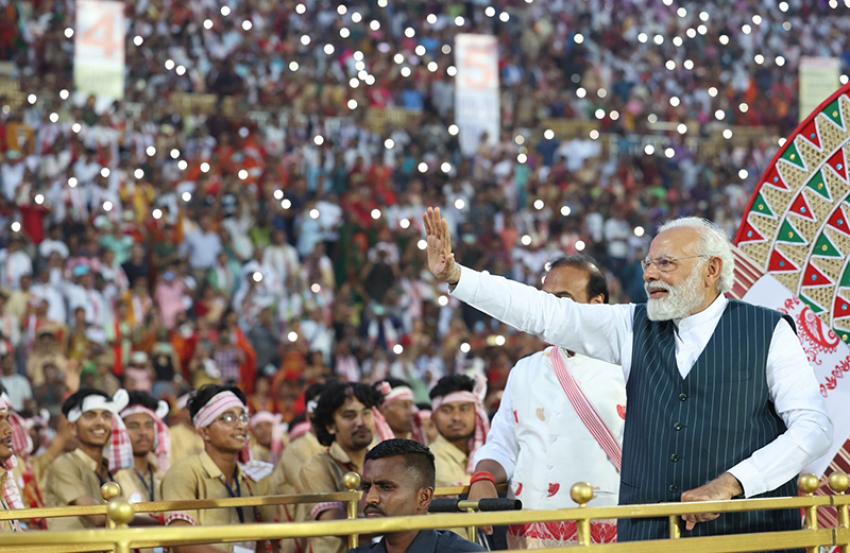 PM attends the Bihu celebrations, in Guwahati on April 14, 2023. PM attends the Bihu celebrations, in Guwahati on April 14 (PIB)
PM attends the Bihu celebrations, in Guwahati on April 14, 2023. PM attends the Bihu celebrations, in Guwahati on April 14 (PIB)
The most important non-religious festival, Bihu is celebrated by the people irrespective of caste, creed and beliefs. It is the main festival in Assam. Rongali or Bohag Bihu is the beginning of the Assamese New Year.
Assamese residing in different parts of India and abroad celebrate all the three Bihu festivals -- Bohaag Bihu, Maagh Bihu and Kaati Bihu.
'Rongali Bihu' is the most important and colourful of the three.
Renowned Guwahati-based author and veteran journalist of repute Dr Samudra Gupta Kashyap said : “Bihu has come a long way from its agrarian importance to become a national festival. Rongali Bihu is about ushering in the New Year. It is also about making new resolutions.
"Bhupen Hazarika had described Bihu as not just a festival, but as the core of Assam's identity, as the lifeline of the Assamese. He had also identified Bihu as something which gives collective courage and strength.”
Dr Kashyap, who has written more than two dozen books on a variety of subjects including "Untold Stories of the Freedom Struggle from Northeast India" (published by Publication Division of the government of India), said : “Bihu is also related to celebration and conservation of Nature. Through Bihu songs, people highlight the importance of trees, birds, animals and rivers too.”
In his the book tiled “The Springtime Bihu of Assam” by eminent scholar and author late Praphulladatta Goswami, a father-figure of folklore research in the northeastern state, had said that the festival associated with the beginning of the season is the Spring time Bihu and that associated with the end is the Winter Bihu.
Astronomically, Bohag Bihu is associated with the Vernal Equinox, Kati Bihu with Autumnal Equinox, and Magh Bihu with Winter Solstice. The term Bihu is traced to Sanskrit visuvan, equinox.
Rongali or Bohag Bihu celebrates the commencement of the harvesting season and is also regarded as the first day of the Assamese New Year. The significance of this festival is purely agricultural in nature. It is celebrated with great enthusiasm and joy across Assam.
Bohag Bihu, is the most important Bihu festival among the three Bihu carnivals, is celebrated for seven days during the month of Bohag (Baishakh Month) which falls somewhere in the middle of the month of April.
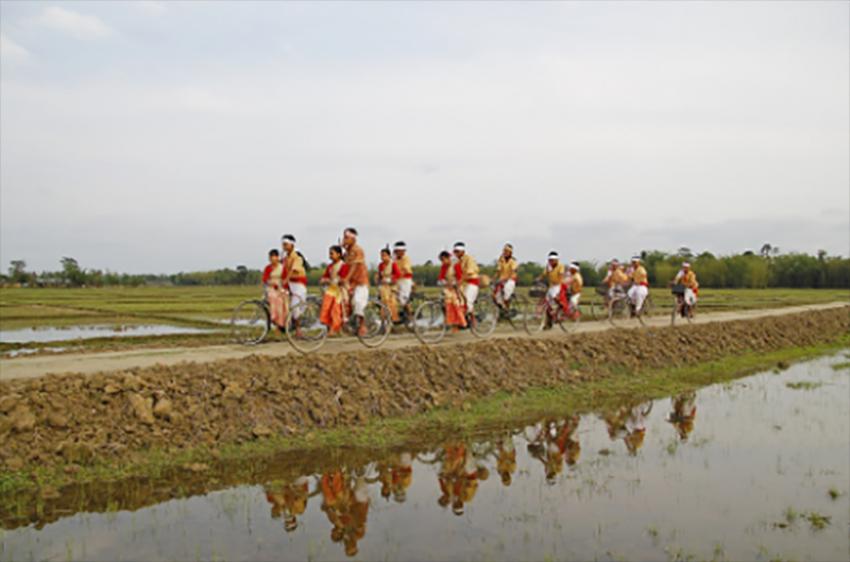 Image: Pixabay
Image: Pixabay
Of the Rongali Bihu (which is also called Bohag Bihu) the name Rongali is derived from the word “Rong”, which means happiness and celebration.
On the first day of the Bohag Bihu, cattle and farm animals are taken to the nearby river or pond and given a thorough bath with a paste of turmeric and black gram. On this day, they are allowed to roam around freely in the field. This ritual is observed to thank the animals for helping them in the farm work. Prayers are offered to the Gods asking for a productive year ahead.
The next day of Bohag Bihu is known as Manuah (human) Bihu. On this day, people dress up in new clothes and gifts are exchanged. People visit their relatives and seek blessings from their elders.
The third day is dedicated to the Gods and that day is known as Gosai (God) Bihu. On this day people worship their household Gods and seek their blessing for a fruitful year ahead.
During the occasion of Rongali Bihu, people wear traditional attire made from muga silk and sing traditional Bihu songs and perform traditional dance.
There is a band of male singers known as Husori, who visit each and every household and sing traditional Bihu songs in the courtyard. They offer their blessings to the household in return for some alms and gifts.
Kongali Bihu or Kati Bihu as it is commonly known derives its name from the month of Kartik which is traditionally known as Kati.
Unlike Bohag Bihu, Kati Bihu is not a colourful festival and the festivities are more solemn in nature. This Bihu is celebrated during the time of relocation of the rice sapling during the month of October. The granaries of the farmers usually remain empty during this time, hence it is known as Kongali (poor) Bihu.
The main part of the Kati Bihu celebration involves lightening of lamps or saaki (candles) in different parts of the household or paddy field. The main lamp is lit in the courtyard near the Tulsi plant. The Tulsi plant holds a special significance for Hindu people as it is considered to be very auspicious in Hindu religion. Besides being very auspicious, the plant is known to possess various medicinal properties that can cure a person of various ailments.
On the occasion of Kati Bihu, the plant is thoroughly cleaned and is placed on a ‘Tulsi Bheti’.
A lamp is lit in front of the plant and various Prasad and prayers are offered to Goddess Tulsi for the wellbeing of the family and for a good harvest. The Prasad is later on shared among various members of the family and relatives.
The farmers lit up a special kind of lamp in their paddy field, named as ‘Akash Bati’ or sky lamp. These lamps are placed on the high bamboo pole believing these lamps are lit to show the ancestors the way to heaven.
According to the scientific reason, these lamps attract various insects or pests in the paddy field with insects get drawn to the fire and die keeping the crops healthy and disease free.
Marking the end of the harvest season, Bhogali Bihu or Magh Bihu is celebrated during the month of January. The Magh Bihu coincides with the celebrations of harvest festival Pongal and Makar Sankranti in many parts of the country.
Magh Bihu, which is the second largest Bihu festival of Assam after Rongali or Bohag Bihu, when the granaries of the farmers are full and there is festivity all across.
Starting their day early, cleaning their houses and courtyard and wearing new clothes, people started celebrating Magh Bihu.
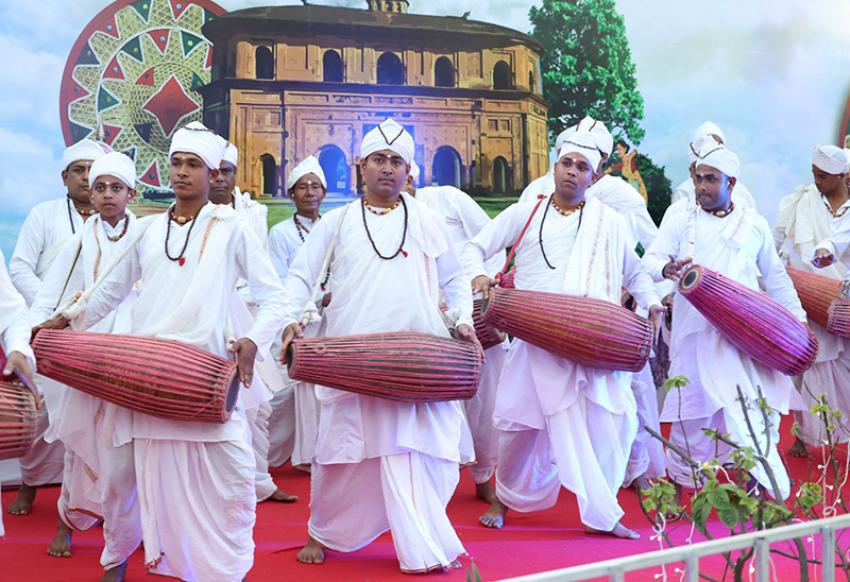 Glimpse at the Bihu celebrations, in Guwahati on April 14, 2023. PM present on the occasion.
Glimpse at the Bihu celebrations, in Guwahati on April 14, 2023. PM present on the occasion.
On the occasion of Magh Bihu, people throw away useless stuff in the fire made from cow dung cakes signifying a new beginning.
The main reason behind creating this bonfire is to make the overall atmosphere warm as the weather tends to remain pretty cold during the last winter month.
On the occasion of Magh Bihu, a lot of people worship Lord Indra, who according to the Hindu mythology is “God of rains and clouds”. People worship Lord Indra praying for sufficient rains in the subsequent months, so that they can achieve a good harvest.
According to another tradition, young men of the villages make temporary huts from clay straw and firewood known as Mejis. Around the Mejis, a temporary makeshift accommodation is prepared known as “belagar”. The families stay in the “belaghar” and stay up all night guarding the Mejis.
Community feast and cultural programmes are observed all throughout the night. In the morning, people move out of their “belaghars” and take a bath in the river and burn their Mejis.
Once the Mejis are burnt down, burnt pieces of wood are collected and thrown into a field, which is believed to provide a good and desired harvest.
- Air Canada just ranked the Best New Restaurants of 2025 - And the Top Spot isn't who you think
- Rediscovering Arunachal's Monpa Cuisine: One Woman’s Millet Momo Revolution
- Discovering Heritage: A visual journey through Odisha crafts museum Kalabhoomi
- From kebabs to biriyani: Lucknow gets UNESCO honour for its royal cuisine
- Delta takes Spanish flavours to the skies
- Kolkata’s iconic Kathi Roll among world’s top 10 wraps: TasteAtlas
- Yellow Taxis and the Colours of Puja
- Starbucks introduces special Durga Puja inspired menu for Kolkata, with an attractive discount offer too
- Rosé All Day and Coastal Vibes: Dining at Chicago's The Hampton Social – River North
- A taste of South India this Durga Puja at Garden Café in Kolkata
Tata Group-owned Air India on Sunday announced the reinstatement of its codeshare agreement with fellow Star Alliance carrier, Air Canada, to offer more flight options for travellers and boost connectivity between India and Canada.
Starting Nov 16, 2025, IndiGo will operate direct flights between Bengaluru and Riyadh, expanding its network to Saudi Arabia.
American Airlines will launch new seasonal service between New York (JFK) and Edinburgh, Scotland (EDI) in March 2026, expanding its international network.

